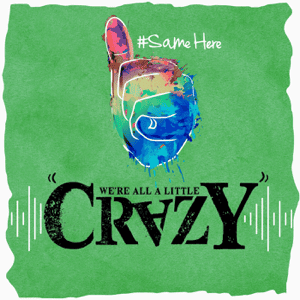Dr. John Rosa and We’re All a Little “Crazy” Podcast

I’m proud to be Chair of the Board of Same Here Global; an incredible nonprofit dedicated to normalizing the conversation around mental health and addiction. This is our podcast which I highly recommend and this week I added my 2 cents. Enjoy and share!
This Episode’s Description, from We’re All a Little “Crazy”:
“Calvin Ridley, drafted by the Falcons in the first round in the 2018 NFL Draft out of Alabama had an incredibly promising start to his career. However in October of 2021 he chose to take a leave of absence from the game he loves, for mental health reasons. Later in 2022, the NFL announced Ridley would be suspended for betting on his team – in a parlay – on a popular phone betting app. The incident came well after his leave of absence for mental health, when he describes the dark space he was in, but that didn’t stop the media and fans from chastising him, claiming he “used mental health” as an excuse to try to wash over his “gambling habits.” This week, over a year later, Ridley published a piece in The Players’ Tribune, to talk about his traumatic past, the therapy he’s been through, and to try to explain why he’d even press the button to bet on his own game & team. The background gave Theo & Eric a chance to talk with addiction expert, Surrogate to the White House, Dr. John Rosa about the brain’s reward system, and why we often cope with emotional pain in maladaptive ways – even when it’s momentary. Theo dove into his own problem gambling to compare his situation to Ridley’s. Darren was in SXSW for this episode but his role as a reporter in the space of sports gambling was referenced often.”


